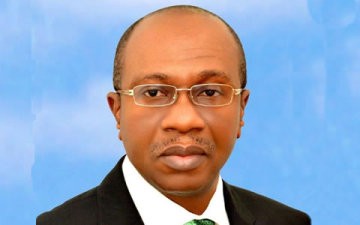Business
Pressure mounts on CBN to review forex restriction list

Already, the economy is facing serious challenges in terms of capacity utilization, unemployment, unstable power supply and high interest rates, which compound the problems of businesses in the country.
Many local businesses are also suffering from unfair competition from imported goods from China and Asia, because of the high cost of production in the country.
The Managing Director, Coleman Cables and Wires, Mr. George Onafowokan, said there was ambiguity in the list of the goods which the apex bank categorized as ineligible for forex from the official market.
Citing the case of iron rods, which were included in the list, he said that they are of different types and could make banks refuse to sell forex to importers of some special iron rods that are not produced in the country, but needed for cable production.
He noted that if the CBN fails to review the list of the restricted items, over 5,000 workers would be thrown to the labour market in the cable and wire industry.
The President, Manufacturers Association of Nigeria (MAN), Dr. Frank Jacobs, told Hallmark that the association had written to the CBN on the need to remove some items from the list of goods that are not valid for forex, but it is still awaiting response from the apex bank.
In the same vein, the President, Lagos Chamber of Commerce and Industry (LCCI), Alhaji Remi Bello, last week during an interactive forum on forex policy organized by the Chamber, disclosed that its members are concerned that intermediate products were on the list of the 41 items excluded from the forex market, which poses a great threat to manufacturers in the country.
“It is a platform for stakeholders to ventilate their concerns and apprehensions on the various policies of the CBN,” he stated.
The Director-General, National Association of Chambers of Commerce, Industries, Mines and Agriculture (NACCIMA), Barrister Emmanuel Cobham, opined that, while it was okay for the CBN to bar some importers of certain products from the forex market to help curtail the pressure on the naira, it has to also consider the interest of local manufacturers.
“There is pressure on the CBN to review the list of the restricted items. But for the sake of our economy, there are some hard measures that need to be taken.
“It is unfortunate that the CBN is doing so many things at the same time, so they are not getting support.
Whatever policy being put out must be people-friendly.
It does not need to be too restrictive that it would cause more harm than they are trying to solve,” he asserted.
Meanwhile, CBN’s Director, Monetary Policy, Mr. Moses Tule, has explained that the apex bank had to restrict some items that have
local substitutes, because there is shortage of forex in the country due to the fall in global oil prices.
“The little forex that we have can’t be given to importers of goods that have local substitutes. We have to give it to businesses that can help generate employment,” he noted.
According to him, Nigeria spent $575 million to import wheat; $374million on fish importation and $34 million for electronics between January and May, 2015, which is not good for the country’s economy.
Mr. Tule, however, raised the hope of manufacturers in the country, saying that CBN policies are not cast on stones, so, they would be looking into their complaints.
“Recall our media briefing in which it was clearly stated that the list was not exhaustive and therefore, not static. There will be remove addition/removal of some of the items from time to time,” the apex bank Director, Communication, Mr. Ibrahim Mu’azu told Hallmark.


